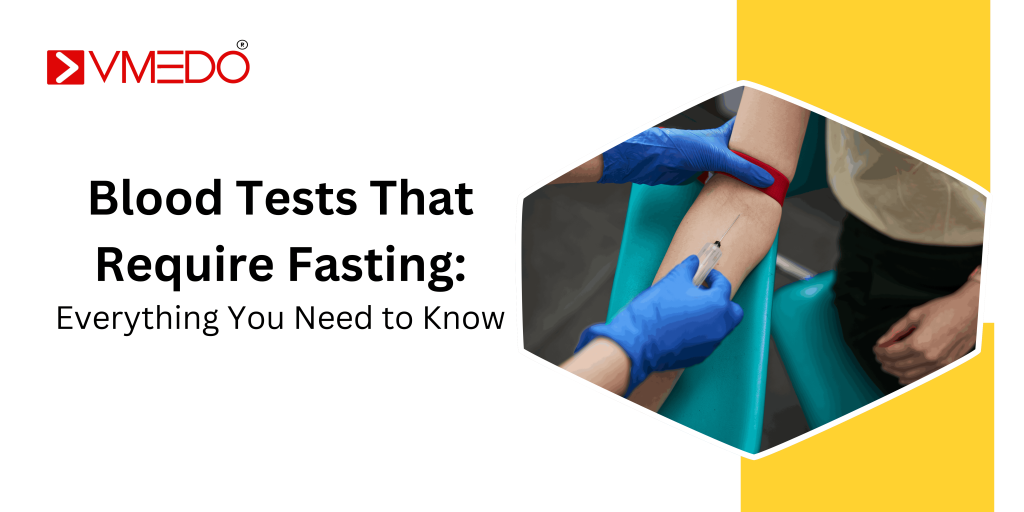Blood tests are essential for diagnosing, monitoring, and preventing various health conditions. However, some tests require fasting to ensure accurate results. If you’re preparing for a fasting blood test, you might have questions about why fasting is necessary, how long to fast, and what to expect before and after the test.
In this comprehensive guide, we will cover everything you need to know about fasting blood tests, including:
-
What fasting blood tests are
-
Why fasting is necessary
-
Common blood tests that require fasting
-
How long you should fast
-
What you can and cannot consume during fasting
-
What to expect during and after the test
-
Tips for an easy fasting experience
What Are Fasting Blood Tests?
A fasting blood test is a type of blood test that requires you to abstain from food and certain drinks for a specified period before your blood is drawn. This ensures that external factors like food, beverages, or medications do not interfere with the test results.
Fasting helps in obtaining accurate levels of glucose, lipids, and other substances in the blood, which might fluctuate due to recent food intake.
Why Is Fasting Necessary for Some Blood Tests?
When you eat, your body absorbs nutrients from food and drinks, which temporarily alters the levels of certain components in your blood. For example, glucose and triglycerides rise after eating. To get an accurate measure of your baseline levels, fasting is required before specific tests.
Fasting ensures that the test results reflect your true metabolic state without interference from recently consumed food. This is particularly important in diagnosing conditions such as diabetes, cholesterol disorders, and metabolic syndrome.
Common Blood Tests That Require Fasting
Several blood tests require fasting to ensure precise results. Here are the most common ones:
1. Fasting Blood Sugar (FBS) or Glucose Test
-
Purpose: Diagnoses diabetes, prediabetes, and monitors blood sugar levels.
-
Fasting Requirement: At least 8-12 hours.
2. Lipid Profile (Cholesterol Test)
-
Purpose: Measures cholesterol and triglyceride levels to assess heart disease risk.
-
Fasting Requirement: 9-12 hours.
3. Glucose Tolerance Test (GTT)
-
Purpose: Diagnoses diabetes and gestational diabetes.
-
Fasting Requirement: At least 8-12 hours, followed by drinking a glucose solution and undergoing multiple blood tests over a few hours.
4. Insulin Test
-
Purpose: Assesses insulin levels and helps diagnose insulin resistance.
-
Fasting Requirement: 8-12 hours.
5. Basic or Comprehensive Metabolic Panel (BMP/CMP)
-
Purpose: Checks kidney function, blood sugar levels, and electrolyte balance.
-
Fasting Requirement: 8-12 hours.
6. Iron Tests (Serum Iron, Total Iron Binding Capacity – TIBC, and Ferritin Tests)
-
Purpose: Assesses iron levels to diagnose anemia or iron overload disorders.
-
Fasting Requirement: 8-12 hours.
7. Gamma-Glutamyl Transferase (GGT) Test
-
Purpose: Evaluates liver function and alcohol consumption effects.
-
Fasting Requirement: At least 8 hours; alcohol should be avoided 24 hours before the test.
8. Vitamin B12 Test
-
Purpose: Diagnoses B12 deficiency, which affects nerve function and red blood cell production.
-
Fasting Requirement: 6-8 hours.
9. C-Peptide Test
-
Purpose: Measures insulin production levels in the pancreas.
-
Fasting Requirement: 8-12 hours.
How Long Should You Fast?
The fasting period depends on the test. Here’s a general guideline:
-
8-12 hours: Most fasting blood tests, including glucose, lipid profile, and metabolic panel.
-
6-8 hours: Some vitamin and hormone tests.
-
12+ hours: Extended glucose tolerance test.
Since most fasting blood tests require 8-12 hours of fasting, scheduling your test in the morning after an overnight fast is ideal.
What Can You Consume While Fasting?
Allowed:
- Plain water (essential to stay hydrated)
- Regular medications (unless instructed otherwise by your doctor)
Not Allowed:
- Food (solid or liquid)
- Coffee or tea (even without sugar or milk)
- Alcohol and sugary drinks
- Chewing gum (especially if sweetened)
What to Expect During the Test
-
Arriving at the Clinic: Visit the lab on an empty stomach at the scheduled time.
-
Blood Draw: A healthcare professional will draw blood from a vein, usually in your arm.
-
Duration: The process takes only a few minutes.
-
Post-Test Instructions: Once the sample is collected, you can eat and drink as usual.
What Happens After the Test?
-
Resume normal eating and drinking: As soon as the test is done, you can have a nutritious meal.
-
Possible dizziness: Some people feel lightheaded after fasting; eating a balanced meal can help.
-
Results availability: Most test results are available within 24-48 hours.
Tips for an Easy Fasting Blood Test
-
Schedule a morning test: This allows overnight fasting while you sleep.
-
Stay hydrated: Drink plenty of water to prevent dehydration.
-
Avoid strenuous exercise: Physical activity can alter blood sugar and lipid levels.
-
Plan your meal: Bring a light snack to eat immediately after the test.
-
Consult your doctor: If you have any health conditions or take medications, check if fasting is necessary.
Conclusion
Fasting blood tests play a crucial role in diagnosing and monitoring various health conditions. Following fasting instructions correctly ensures accurate results, leading to proper diagnosis and treatment. If you’re unsure about fasting requirements for a specific test, consult your doctor or healthcare provider.
By following the right steps, staying hydrated, and scheduling your test in the morning, you can complete your fasting blood test smoothly and get reliable results for your health assessment.
For hassle-free home sample collection and expert consultation, book your blood test with VMEDO today!
